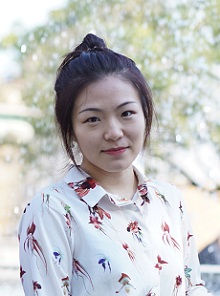Kontakt
Museumsinsel 1
80538 München
Raum: 01.225
E-Mail:
shangshang.wang@lrz.uni-muenchen.de
Website:
https://www.gn.geschichte.uni-muenchen.de/personen/mitarbeiter_wg/shangshang-wang/index.html
Sprechstunde:
There are no face-to-face office hours currently.
If you have any questions, please contact me by Email.
Weitere Informationen
Promotionsprojekt
My dissertation investigates three anarchist biologists and how their radical political departures were shaped by evolutionary theories and empirical research in microbiology and embryology. These departures unfolded within the transnational anarchist experience of bio-politics, set against the backdrop of Western and Japanese imperialism and the rise of nationalism in the first half of the twentieth-century China. Drawing upon interdisciplinary insights from the history of science and global intellectual history, my dissertation reveals an anarchist interpretation of a decentralized nature that, from microbiology to cosmology, navigated forms of knowledge about evolution and interspecies relationships.
The dissertation is comprised of three parts: the first part analyzes how political activists in China agitated around the notion of evolution—by the turn of the twentieth century a considerably accepted concept following the Chinese Spencerian author Yan Fu’s seminal work Tianyan Lun (On Heavenly Evolution). In doing so, it unveils an anarchist reading of Darwin that challenged the imperial Qing’s ideological regime of a divine and unchanging tian (Heaven). The second part explores a compelling case of biochemical study conducted at the Pasteur Institute by a self-proclaimed anarchist Li Shizeng, who celebrated soybean-based food as an anarchist solution to protein and nutritional deficiencies among the impoverished majority. In the last part, my analysis focuses on a French-trained anarchist embryologist Zhu Xi and his research on parthenogenetic frogs during the increasing politicization of genetics, war mobilization, and state-building projects from the 1930s through the Pacific War. By zooming in on the historical intricacies of each case and zooming out to place them within the broader chronicles of history, my research bridges a much neglected conversation between biology, scientific practices, and the anarchist movement in the first half of the twentieth century.
Forschungsschwerpunkte:
- History of Biology
- Anarchism
- Political and Intellectual History
- China in Twentieth Century
Auszeichnungen / Stipendien
- October 2022 - March 2023: German Academic Exchange Service (DAAD) research scholarship for doctoral candidates (Forschungsstipendien für Doktorandinnen und Doktoranden)
- May-June 2022: Fellowship at the Joint Center for Advanced Studies “Worldmaking from a Global Perspective: A Dialogue with China”, Heidelberg University (funded by the German Federal Ministry of Education and Research, BMBF)
- October 2018 - March 2019: Japan Student Service Organization (JASSO) Scholarship, Kyoto University


